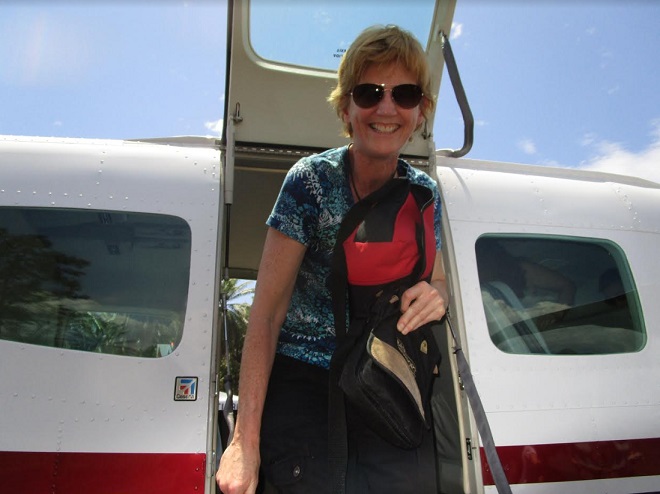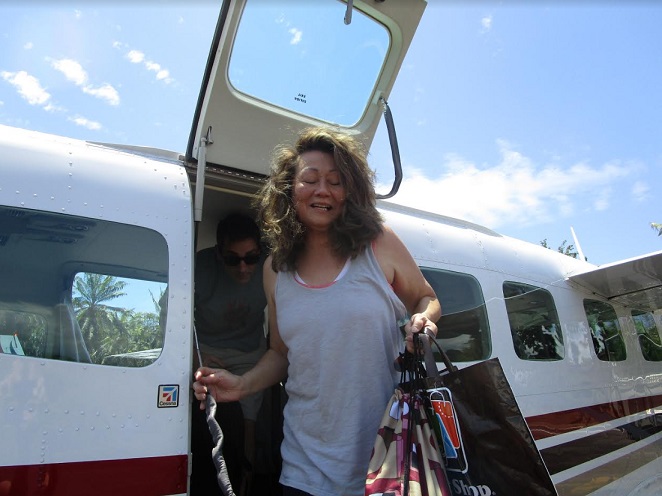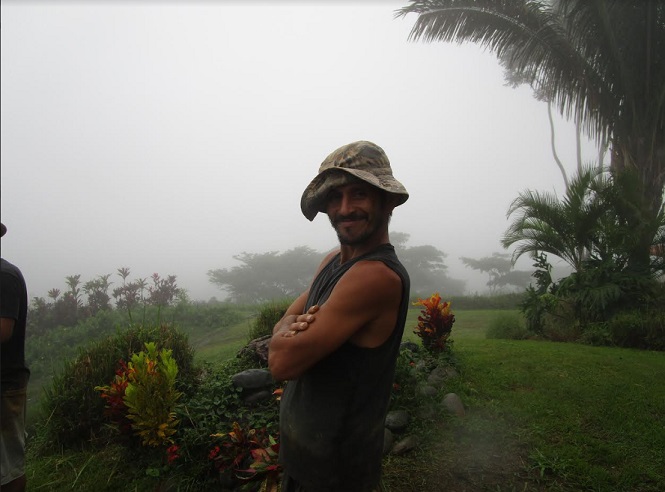Happiness Is an “Inside Job”
“What Do You Do after Your Dreams Come True?” – Anthony Bourdain
Yet again, we’re shocked that a celebrity has committed suicide, leaving us regular people asking, “Why would he do that?” It’s hard to grasp how someone who’s realized their dreams would not feel their life was worth protecting, preserving, and enjoying. We imagine that if we had only half of what they possessed, our lives would be completely fulfilled and happy, not a situation we’d flee from by suicide. We think we know exactly what we’d do if our dreams came true; we’d live to the fullest, maybe for the first time. “All that wealth, that fame and self-destruct? Are you crazy?”
But again and again (remember Robin Williams?) those who are supposed to inspire us and show us that a perfect life is possible, often end up telling us something very different.
We will never truly know why these exemplars took their lives, we can only guess. They might not have even understood their own motivations. But their passing could be a paradoxical blessing – encouraging us to rethink our own assumptions about the good life and happiness.
SOME THINGS TO RECONSIDER.
May I suggest here that there are at least three common assumptions we have that we might want to re-examine? They are:
– Our material circumstances are the key to happiness.
– Wealth ensures happiness.
– We can not be happy without great wealth.

DEFINING HAPPINESS.
Before evaluating the validity of our happiness assumptions, we must have a clear definition of happiness with which to compare those assumptions. The best definition I’ve come across is “Happiness is what we feel when we are satisfied, when we’re content with our overall life. When we feel we’re living the best possible life available to us. When we’re being our best self.”
This definition leaves room for many options of success and happiness, yet some may see it as a pretty lame definition. Many only consider themselves happy when they feel as gleeful as kids turned loose at recess, elated, overjoyed. “Satisfied”? “Content”? That sounds like settling. We want the “whole enchilada”, not some tofu imitation of the real thing.
Remember though, there are the momentary highs we all regard as happy AND the happy we feel about the overall state of our lives. That second “happy”, unlike the first, would include standard issue feelings and the inescapable lows found in all lives.
Our use of “happy” to describe both states can confuse and, admittedly, we need better terms to distinguish between the different degrees of feelings. But for now, the “happy” we’re discussing refers to our emotional judgement of our total well being.
ARE MATERIAL CIRCUMSTANCES THE KEY TO HAPPINESS?
What made Anthony Bourdain, Kate Spade, and others’ lives SEEM so ideal, and their deaths so surprising, was their wealth, fame, and accomplishments. Their material circumstances. Typically, we wouldn’t be surprised if an average Joe or Jane ended their own lives, but someone so admired by the public, someone so high up the social, achievement, and wealth ladder? Now, that comes as a shock.
The research, as best it can tell, indicates that big wealth is not nearly as big a contributor to overall happiness as as we might guess. From within the difficulties, struggles, and obstacles of our own lives, wealth would seem to solve a lot of problems and make our life a lot better, perfect even, and happier. And maybe it would . . . for a while. That may surprise you, but it’s a fact that the impact of wealth on overall happiness is usually quite overblown. The mega lottery winner is overjoyed when their number comes in but, in most cases, their lives return to pre-winning happiness levels within a few months.
Why? Because we get used to everything, eventually. That new Mercedes, that movie star spouse, that McMansion, all eventually become routine; they become our new normal. And like Nobel Prize laureates or Academy Award winners, we typically return to life as usual. And, not only do our attitudes about our bank balance and possessions change, so do those things we’ve acquired; they become older, common, deteriorate, and no longer bring as much pride.
Many persons continue to buy more and more things in their endless pursuit of happiness through material wealth. That next purchase, that next new item, we are promised, will be THE ONE. That’s what our culture immerses us in daily; the inescapable message that our external circumstances are the key to our happiness.
We consume so much now that a new industry has sprung up to meet yet another demand of our acquisitive culture; storage centers. (We haven’t gone to outside storage yet, our extra stuff is in the garage and the cars are parked on the driveway.) So, to be able to buy more, people move their old purchases to a storage center.
Do we really need more? Will the next shipment of new items really make us happy, when no previous delivery did so? And in FOMO, we continue in our vital role in the global economy; buying all the stuff that China makes.
To be sure, our material well being does have an important, if not a key impact, on our happiness. Try being happy if we lack sufficient food and water. No way! The Buddha found that one grain of rice a day didn’t bring enlightenment and happiness. So wealth does influence our overall happiness, to some extent, but it does not guarantee happiness, even though it can help.
So, in our brief review of wealth and happiness, we must ask:

CAN WE BE TRULY HAPPY WITHOUT FABULOUS WEALTH?
The movie “Happy” begins by looking at the life of a rickshaw puller who transports passengers in his two-wheel vehicle through the hot, humid, monsooning, crowded and sewage strewn streets of Kolkata, India. At night he returns to a hut made of bamboo strips and black plastic sheeting. On some nights he and his family only have rice and salt to live on.
Is he happy? Yes! This guy is really happy. We see it in his eyes and actions and words.
How could Bourdain and Spade commit suicide and this guy daily, happily, seeks more back-breaking, and sometime degrading, fares for his human powered taxi? How could that be? Well, you’ve certainly known people who are happy with little. You’ve probably met many here in Costa Rica; their culture seems less bent on “more and more” and “never enough”, than ours, so their standard for the good life requires less stuff. What’s their secret?
FIRST AND FOREMOST, REMEMBER THAT HAPPINESS IS A STATE OF MIND, “AN INSIDE JOB”
We may want more material goods in life, but not because we’re really lacking stuff, but because we may feel something’s missing in us. When we feel we’re lacking, we’re deficient. We ourselves, not our circumstances, are inadequate because we don’t have as much “stuff’ as others. And from that we might sadly, hopelessly, conclude “I’ve got all this, but I’m still me. And I’m still not enough.” Or “They not only have more and better stuff, they must be better individual than me.”
In this state of mind, a relatively blessed, but unhappy person regards themselves as the problem. How, then, could one be happy with their life, regardless of how blessed it is, if they are are tragically unhappy with themselves?
If they suffered a childhood which demeaned, degraded, rejected them as as “stupid, ugly, worthless, incompetent, broken, sinful, etc.” they will become convinced that such slurs are their true essence. Not only do they learn to see themselves as their abusers did, they TREAT themselves that way as well. As a result they may maintain their negative self-image and become condemned to compensating for their self-perceived worthlessness by surrounding themselves with signs of success.
HOW DOES MANOJ SINGH DO IT?
That rickshaw wallah, on the other hand, has the necessary mind set; he’s grateful for what he DOES have materially, rather than wallowing in resentfulness for what he’s missing. He devotes himself to the wellbeing of others – especially his family. The meaning he gives to his life by doing for others connects him to something larger than himself and raises his self-worth. So he feels proud of who he is, how he lives, what he has done for others. He feels good about himself because he’s done his best for his family and for others. His external circumstances may suck, but inside, he’s doing great. His mind is a “safe-space” for him to live. He’s living the best possible life available to him under the circumstances. He’s being his best self. HE is somebody to his family and friends. He’s good enough. And he’s happy.
SORRY MB DEALERS…
One last point. Air, water, and food do provide us with necessities. Air provides oxygen to process food. Water helps maintain our temperature and transports necessities throughout our body. Food provides energy and nutrients for life, growth and repair.
Those benefits are IN the air, water, and food. But IS happiness IN that Mercedes? OR does that Mercedes help us change how we see and feel about ourselves? Helping us be happier with our lives and who we are?
Can you see the opportunities for happiness that this viewpoint offers? It’s not really being able to buy a luxury vehicle from the high end auto dealers in Escazu, it’s in how you see and treat yourself.
Tony Johnson is a retired university mental health center counselor who lives, learns, and works to accept his imperfect self in Ojochal. He can be reached for consultations at: johnson.tony4536@gmail.com

HAPPINESS IS A STATE OF MIND
For numerous reasons, we look to the material world for our fulfillment. We’re material beings, after all. So we completely depend on the material world for our very survival. And there’s no happiness without survival.
Remember, our life is given not requested. We didn’t ask to be born. But its preservation -let alone its enhancement-must be earned, must be worked for.
Earned by meeting the unending the needs of our biology and our social-emotional natures. Neverending needs for air, water, energy, health, satisfying relations, and love.
How many times have you ever had these needs “spontaneously fulfilled”?
Meeting those needs requires making good decisions and taking effective actions. While we come equipped with an onboard guidance system (pleasure/reward and pain/punishment), those guides can be mistaken or misled. Pleasure from street drugs can harm us while the pain of exercise can strengthen us. So there are no guarantees of making the right decisions or taking the best actions.
Sadly, Anthony Bourdain’s dream may have created pain somehow or not ended his pain as he had hoped. We may not really know what’s best for us.
To make things still more difficult, our needs arouse expectations and lead to predictions. We expect that the car will start, the road will be clear, and the store will have the needed item in stock. Maybe so, maybe not.
When our needs are not met, our emotional reactions may help or hurt us. Unmet, those needs
Are you into beautiful Costa Rica?
All interesting things you want to know about Costa Rica are right here in our newsletter! Enter your email and press "subscribe" button.


